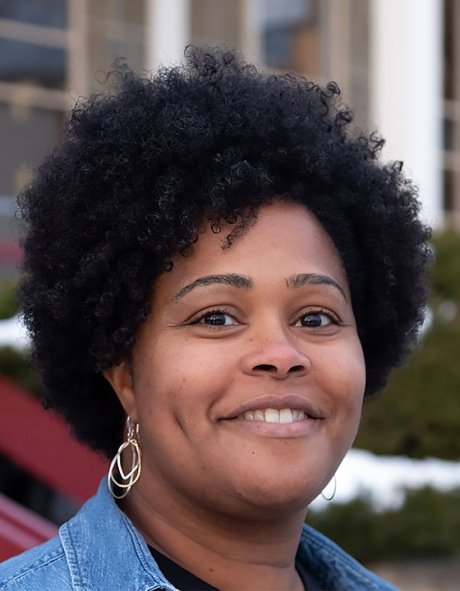
Each one, reach one, Bass advocates.
One morning a man walked along a beach covered with thousands of starfish that had washed up during a storm; they were now drying in the sun and would die if they didn't make it back to the ocean. Up ahead he saw a little girl picking up the starfish one by one and tossing them back into the sea. As he approached her, he couldn't help but ask, "Why bother? There are too many of them. You won't make a difference." The little girl picked up another starfish, tossed it into the water and replied, "But I made a difference to that one."
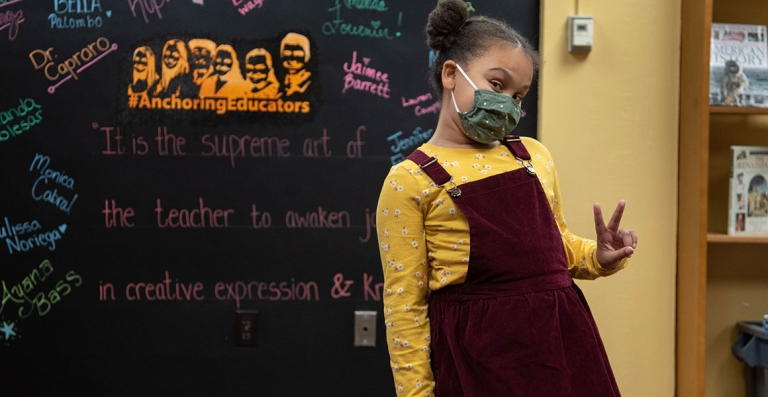
Like the child in this allegory, RIC senior Ayana Bass sees value in each individual human life. Her life purpose, she says, is to help individuals see it in themselves.
The 39-year-old McNair Scholar is a research intern for the Equity Institute, a member of the Educators of Color Committee for the Rhode Island Department of Education (RIDE) and she is on the state leadership team for the Collaboration for Effective Educator Development, Accountability and Reform (CEEDAR).
As an education major, her research and her off-campus affiliations are geared to one goal: to diversify Rhode Island's teacher workforce to reflect more teachers of color and to remove barriers for teacher assistants who want to achieve certification.
Even before Bass enrolled at Rhode Island College, she was a changemaker in the Providence school system.
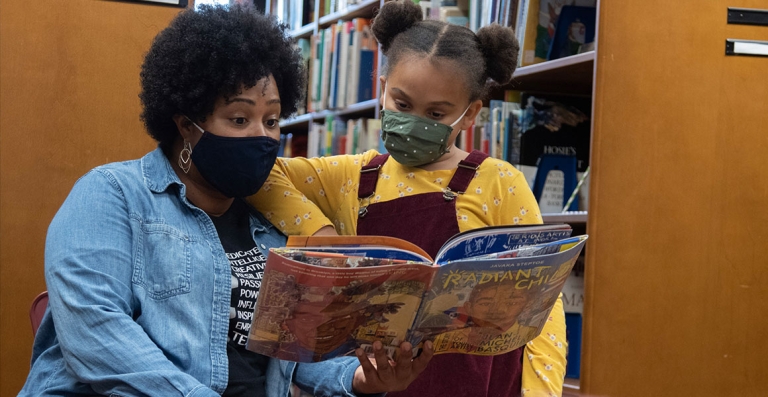
"I chose a major in elementary special education at RIC because my daughter was diagnosed with ADHD in second grade and struggled academically," Bass says. "I was regularly advocating for her, yet it wasn't until fifth grade that she was given a 504 plan [a formal plan developed by the school to give students with disabilities the support they need]."
To advocate for other families facing similar hurdles, Bass joined the Local Advisory Committee, a group of Providence parents, teachers, school administrators and related service providers (speech/language pathologists, social workers and psychologists), who work together on behalf of children with special needs to provide resources and services to parents and special education staff.
"I felt that parents and their children could benefit from a parent leader on the committee who had advocated for her own child for services," says Bass. "I learned how to best support these families through my own experiences."
That same altruism would show itself at Rhode Island College when Bass faced obstacles in earning her teacher certification.
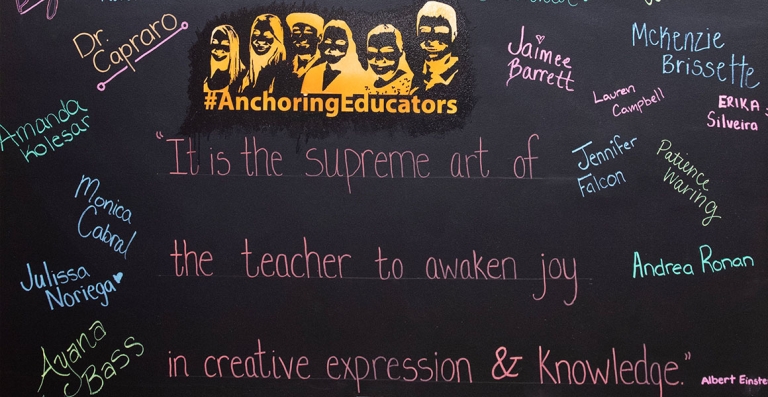
"They tell you right away that in order to student teach for a year you'll have to quit your job," she says. "As a single mom, I couldn't quit my job."
What Bass did do is step down from a management position to take on a lower-paying position with flexible hours and request from RIC an alternative student teaching placement. The YMCA afterschool program, where children typically have IEP plans or were multilingual learners, became her alternate placement, and for three days a week she also worked in a collaborative classroom.
"My experience as a nontraditional student in a traditional program, and my struggle to find alternative means to complete my student teaching requirement, made me wonder how many other professionals who were passionate about teaching faced barriers to teacher certification," she says.
This would become yet another focus of advocacy for Bass. In 2019, as a RIC McNair Scholar, she chose to focus her research on the lack of diversity within Rhode Island's teacher workforce and pathways for teacher assistants to earn certification.
TAs are passionate, dedicated individuals who assist teachers in the classroom, Bass says. They reinforce lessons by reviewing material with students one-on-one or in small groups. "If you can teach them the pedagogy so that they can get certified, they'll be able to create financial security for their families while doing something they love," she says.
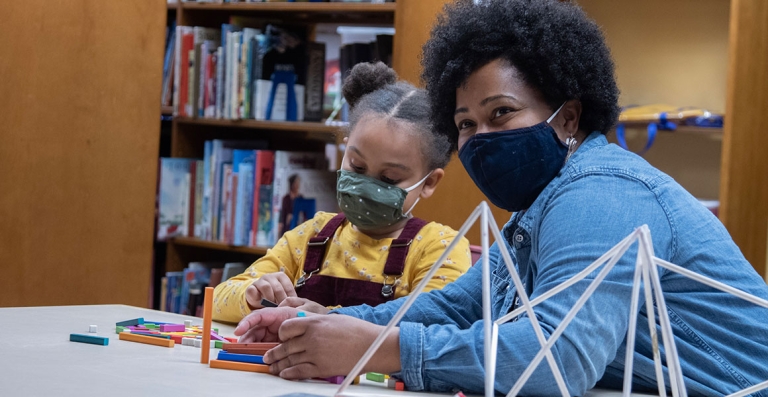
Under the supervision of her research mentor, RIC Associate Professor of Special Education Cara McDermott-Fasy, Bass conducted a survey of TAs who work in the Providence School District and followed that up with a focus group. Her research uncovered several barriers to certification. Topping the list were financial commitments, family commitments and passing the PRAXIS exam.
With the encouragement of McDermott-Fasy, Bass joined the CEEDAR network, which, among other initiatives, helps states and higher education institutions reform "teacher and leader preparation programs and revise licensure standards to align with reforms."
She also joined the Equity Institute, inspired by their pathway program for professionals of color. Titled the Education Leaders Fellowship Program, the Equity Institute helps TAs of color earn their B.A.s. Bass is now following their fellows through their academic journey and a year into teaching.
She is also part of RIDE's Educators of Color Committee. In November 2019 Commissioner of Education Angélica Infante-Green convened educators of color from across the Ocean State for a series of conversations to discuss how best to diversify the educator workforce. Bass sat among them.
Conversations centered on "addressing existing barriers into the profession; recruitment strategies; the working environment as it pertains to the treatment of educators, families and staff; and ongoing supports."
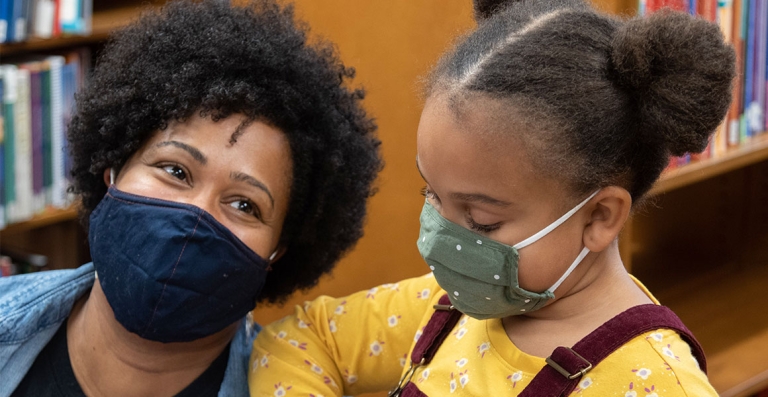
"The draw, for me, was the combined opportunity for education and service," Bass says. "Being on the committee has helped me grow personally and professionally and reaffirmed that the network of support is there."
All the stars appear to be aligned for Bass and the dream she has for tomorrow's teachers who, if she has it her way, will be more diverse and more empowered. "Everything starts with a dream," Bass says. "If you believe in something and you're passionate enough about it, it will propel you forward."
Effective Jan.1, 2021, Bass will take on the role of full-time program coordinator for the Equity Institute. She will also present her research at the 2021 Council for Exceptional Children Conference, and she is completing her application to graduate school at Brown University.
